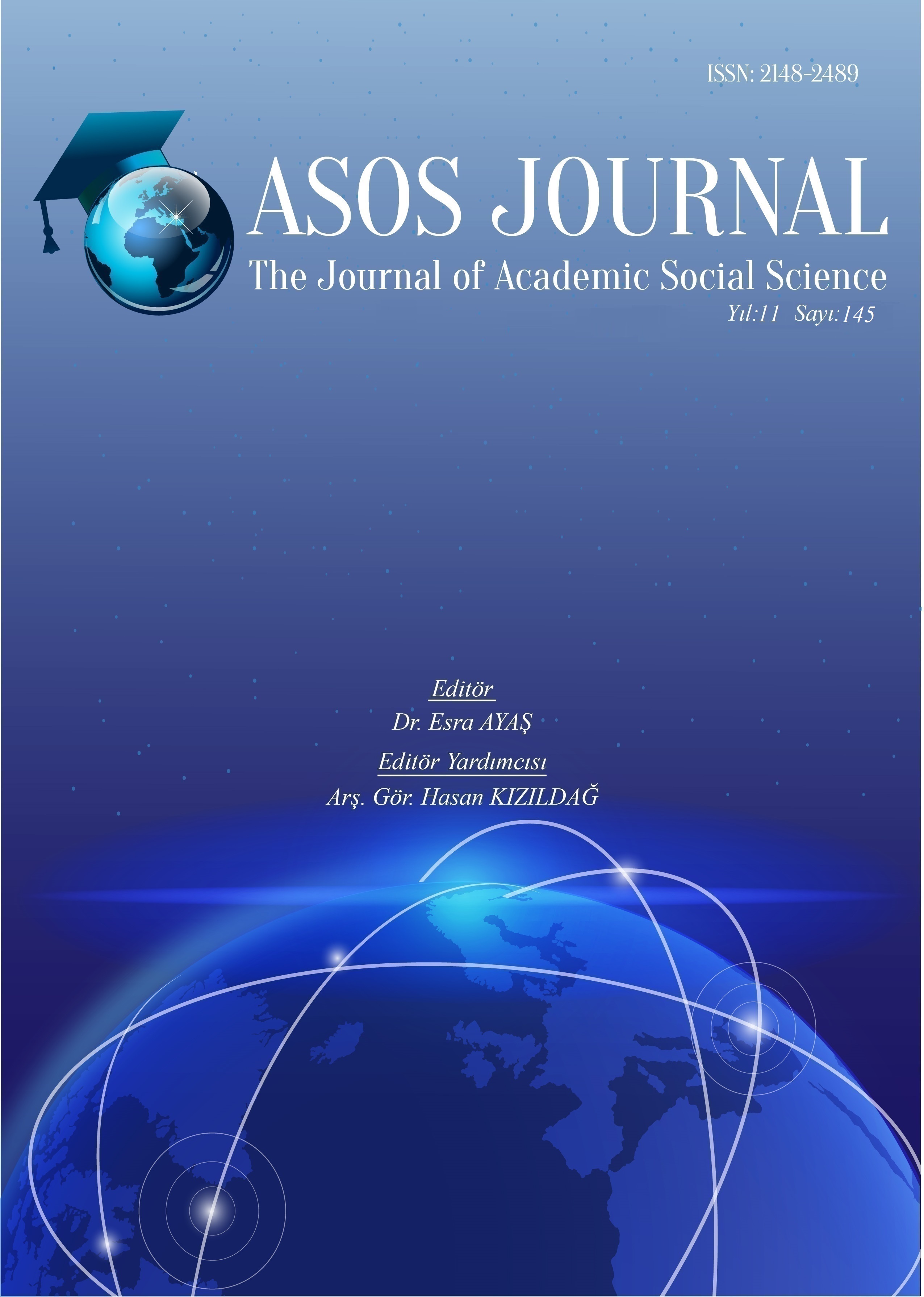Author :
Abstract
Zamanın algılanma biçimi çağdan çağa, bölgeden bölgeye farklılıklar göstermiştir. Bundaki en büyük âmil hayatın neyin merkeze alınarak yaşandığıdır. Din merkezli bir hayatın zamanı algılayışı ile profan bir hayat tarzındaki zaman algılamasının birbirine benzemeyeceği aşikârdır. Aynı zamanda dinin merkezde olduğu hayatta da kabul edilen dinin niteliği, zamanın taksim edilmesinde önemli bir nirengi noktasıdır. Bu bağlamda sosyal bilimlerin birçok alanında olduğu gibi burada da Doğu ve Batı kavramları ön plana çıkmaktadır. Doğu’nun hayata bakışı ile Batı’nın hayata bakışının farklı olması zamanı algılayışlarını da birbirine benzemez kılmıştır. Bunun yanında Batı’da hayata bakışın modern düşünceyle farklılaşmaya başlaması Batı ile ilgili değerlendirmelerde modern öncesi ve sonrası şeklinde bir bölünmeyi de zorunlu kılmaktadır. Modern düşüncenin daha sonra cihana yayılmaya başlaması, ulaştığı yerlerde zihniyette ve sonrasında yaşayışta bir ikilik meydana getirmiştir. Özellikle Türkiye gibi ülkelerde bu çatışma bazen önemli buhranlara bazen de mümbit fikrî mülahazaların ortaya çıkmasına etki etmiştir. Bu çalışmada Türkiye’deki zaman algılayışının tarihsel süreç içerisinde nerelerden beslendiği ve bunun Reha Erdem’in “Beş Vakit” filmine yansımaları üzerinde durulmuştur. Çalışmada ele alınan filmin çözümlenmesinde nitel içerik analizi yöntemi kullanılmaktadır. Batı dışı bir toplum olan Türk toplumunun modernleşme çabası sonucu değişen zaman anlayışı ve buna yönelik tartışmalar Beş Vakit filmine yansımış ve bu çatışma kendini semboller, ifadeler ve durumlarla göstermiştir.
Keywords
Abstract
The way of time' perceiving has varied from era to era and region to region. The biggest factor in this is what life is centered on. It is obvious that the perception of time in a religion-centered life and the perception of time in a profane lifestyle will not be similar. At the same time, the nature of religion, which is also accepted in life where religion is at the center, is an important triangulation point in the division of time. In this context, as in many fields of social sciences, the concepts of East and West come to the fore. The fact that the East's view of life and the West's view of life are different has made their perception of time dissimilar. In addition, the fact that the view of life in the West began to differentiate with modern thought necessitates a division into pre-modern and post-modern in evaluations of the West. The fact that modern thought began to spread across the world later on created a duality in the mentality and then in the way of life in the places it reached. Especially in countries like Turkey, this conflict has sometimes led to important crises and sometimes to the emergence of fruitful intellectual considerations. This study focuses on where the perception of time in Turkey has been fed from in the historical process and its reflections on Reha Erdem's movie "Beş Vakit". Qualitative content analysis method is used in the analysis of the film discussed in the study. The changing understanding of time as a result of the modernization efforts of Turkish society, which is a non-Western society, and the debates about it were reflected in the film "Beş Vakit" and this conflict manifested itself through symbols, expressions and situations.
